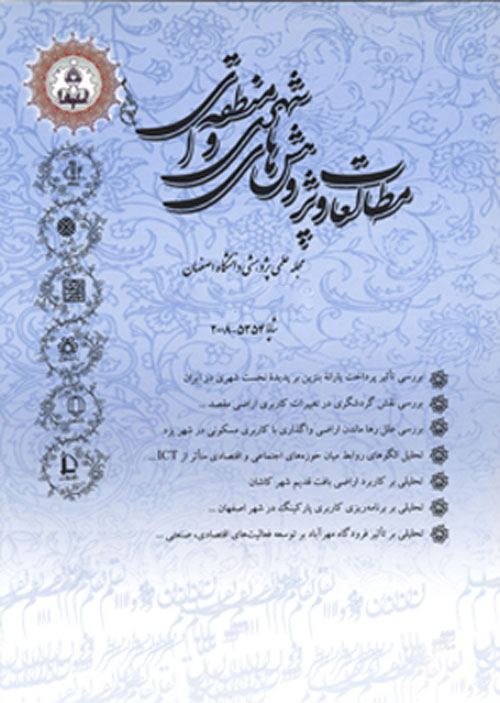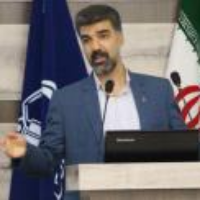City Diplomacy, analysis of the Role of Cities as the New Actor in International Relations
Author(s):
Abstract:
Extended abstract 1-Introduction Along with the information technology development and communicational networks advancement، cities have changed into the main actors of global communication and world economy areas on the space of flows. Concentration of different areas in the cities indicates the rapid movement of the world towards the urbanization and more developments of metropolises and their changes to the global cities and eventually to the world cities. In this context، cities achieve enough influence and reliability to do diplomatic activities، promoting their economic، political، technological، cultural and infrastructural positions. They reveal a new form of diplomacy in their activities which it is named in modern diplomacy world as the “city diplomacy”. Although diplomacy always has been applied by diplomats or other government representatives who have been introduced to other states، we can find promotion and development of traditional diplomacy as the result of emerging some developments such as relations improvement due to technology development، respect to public thoughts and extension of common interest meaning. In this area we deal with increasing intervention and presence of officials، organizations and local institutions as the new actors in international interactions. 2- Theoretical Bases: 1-2- International environment development: In modern world، examination and analysis of international relations and diplomacy entails accurate examination of flexible views and their logical analysis of international environment. However، diplomacy either traditional or modern has been influenced by changes in international environment and its developments. All over the 20th century، this environment was affected by nation-stats. This continued to the end of 20th in Fordism Economy format but extend development of capitalism regime caused to change the Fordism to the post-Fordism and modern societies take place in institutional status in which other actors apart from government were allowed to act widely. Addition to theory and social- economic structures developments، globalization and capitalism based on consumption create values beyond the definitions of nation- stats، so market environment and cultural- social phenomenon go over the national borders and challenge the modern government. Under such conditions، all economy، political and even cultural areas are developed. These developments lead to power transformation from government to institutions and international on top and local governments and civil society in bottom of international environment and it allow other subnational actors such as cities to present. 2-2- Diplomacy development and city diplomacy formation: Diplomacy changes with the change of global structures. Fading governance of national stats، development of communications technology، presence of non-governmental actors and increasing public knowledge in global level are the most basic factors that play a role in diplomacy developments. In the modern world، formal diplomacy is not able to recognize، manage and provide all citizens needs in international interactions by itself since citizenship interdependence between nations has been extended and society needs experts especially in urban issues to overcome all numerous problems which are common between all nations and to profit their local opportunities. In this context، cities achieve enough influence and reliability to do diplomatic activities through promotion of their economic، political، technological، cultural and infrastructural positions. They reveal the new form of diplomacy in their activities which it is named “city diplomacy” in modern diplomacy world. 3- Discussion City diplomacy and subsequently city foreign policy have various dimensions and functions. These dimensions can be extrapolated from five functions of diplomacy: facilitating communication، negotiating agreements، gathering information، preventing conflicts and symbolizing the existence of an international society. City diplomacy has also six dimensions as follows: - Peace- building and security: Certainly، threat elimination of interests of a state is the first aim of all diplomatic communications and security is the most basic interest of a state. Despite the fact that many would not see it as cities’ core task، in recent years، conflict resolution has turned into an important dimension of city diplomacy. Perhaps the most convincing argument for their involvement is that the root victims of conflicts are most often local and local governments and cities are members of political groups that feel more responsibility for protection of other citizens and contribution to development and peace-building. Second، cities do not possess arms، given that arms are a state monopoly. In this situation، cities have a tendency to solve the conflict through non-military. Totally، it can be said that City diplomacy includes three distinct functions in peace-building and security dimension. 1) Raising awareness at the local level on the particular situation، and other forms of giving support at the local level. 2) Political pressure to ensure that these political pressures promote campaigns for peace. 3) Cooperation in supporting cooperative projects between cities، exchanging knowledge، and attaining funds for concrete projects. - Development: Local institutions and societies often play an important role in development. Emerge the activities differ and can range from international loans and building schools to information and technology- sharing and promoting democracy through improved local governance. Diplomatic status of this kind of development is different. Sometimes there is direct contact between the mayors of involved cities، while at other times contacts may run via civil servants or citizen’s organizations which administer international contacts on behalf of city governments. Development assistance is sometimes also provided through associations of municipalities or a civil servants on behalf of a city’s government. An example of such a new channel is the involvement of cities in the millennium towns in this campaign، hundreds of cities in the developed and developing world are united to eradicate extreme poverty and hunger، achieve universal primary education and promote gender equality. - Linked to global economy and economic growth: Trade globalization and investment to communicate financial relations has been considered as a very important factor of national and international economy security. Therefore، promotion of city diplomacy is necessary for development. It appears that there are two ways by which city diplomats can ensure economic gains for their city: first، they can attract tourists، foreign companies، international organizations and international events to their cities; and second، they can export their services and knowledge or enter into partnership agreements with other cities. - Cultural exchanges: Analysis of partnership agreements between cities shows that culture nowadays still plays an important role in diplomacy of cities، also outside city- twinning projects. Allowing young people from cities in different cultures to interact with one another through sports، organizing cultural visits for officials from other cities and setting up guidelines to promote cultural development are a few examples of the scope of cultural dimension of city diplomacy. Part of the boarder dimension of cultural relations are the diplomatic activities that focus on exchanging values relating to for example، freedom of speech، religion and sexual orientation. - Networks extension and international cooperation development: Scale of inter-city relations and urban networks also promoted to global level as the result of elimination of transnational relations problems under globalization process. More recent are the diplomatic efforts geared towards international cooperation between cities more and more. International networks in general seem to be replacing the international society of states on the diplomatic stage and cities contribute to this phenomenon. - Representation and membership in international organizations: The representative dimension of city diplomacy may come closest to what people have in their mind when thinking of city diplomacy، as it encompasses all of those activities that are aim at representing the city at international organizations. The aim of city diplomacy in the representative dimension is to participate in and influence decision- making at the supra- national level. 4-
Conclusion
As mentioned earlier، it seems that cities participate in almost every stage of international politics as a result of globalization، technology development and emerging common problems of society which require cooperation of all actors in international area either transnational actors like international organizations or sub-national actors such as local governments and civil society and their associated institutions. In modern world، cities are changing and will continue to change current diplomatic process. It becomes increasingly clear that traditional diplomatic structures have to be altered in order to include non-state actors and to protect local interests. These changes، subsequently reveal need to effective diplomatic relations that logically pass the city diplomacy channel because of compatibility to local conditions. This paper uses explanatory method and tries to analyze function and role of cities as the new actors of international relations in documentary method and city diplomacy based framework. Results of this study indicated that cities have been turned into an active actors in international area، playing transformational role in security، development، economy، culture، networking and representation in international organizations. 5- Suggestions: Given mentioned results and on the base of the resulted conclusion from the study، it can be suggested that more authorities are devolved to city council of metropolises regarded municipal potential in local and regional levels. And opportunities should be provided to gain more interests for citizens through city diplomacy channel، using unique capabilities of touristy cities for cultural communicating and removing barriers in foreign investment that is possible only by attracting foreign investors’ trust and guaranteeing of their capital and investment security in our country.Keywords:
Language:
Persian
Published:
Journal Urban - Regional Studies and Research, Volume:5 Issue: 20, 2014
Pages:
163 to 182
https://magiran.com/p1289768
دانلود و مطالعه متن این مقاله با یکی از روشهای زیر امکان پذیر است:
اشتراک شخصی
با عضویت و پرداخت آنلاین حق اشتراک یکساله به مبلغ 1,390,000ريال میتوانید 70 عنوان مطلب دانلود کنید!
اشتراک سازمانی
به کتابخانه دانشگاه یا محل کار خود پیشنهاد کنید تا اشتراک سازمانی این پایگاه را برای دسترسی نامحدود همه کاربران به متن مطالب تهیه نمایند!
توجه!
- حق عضویت دریافتی صرف حمایت از نشریات عضو و نگهداری، تکمیل و توسعه مگیران میشود.
- پرداخت حق اشتراک و دانلود مقالات اجازه بازنشر آن در سایر رسانههای چاپی و دیجیتال را به کاربر نمیدهد.
In order to view content subscription is required
Personal subscription
Subscribe magiran.com for 70 € euros via PayPal and download 70 articles during a year.
Organization subscription
Please contact us to subscribe your university or library for unlimited access!



